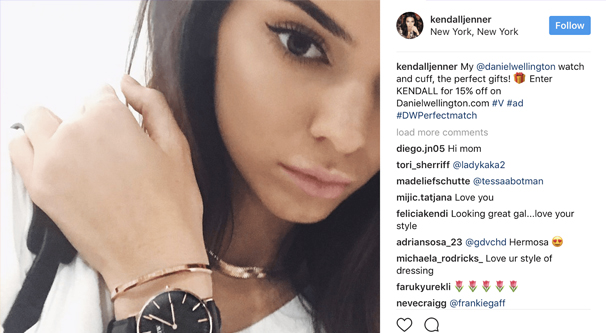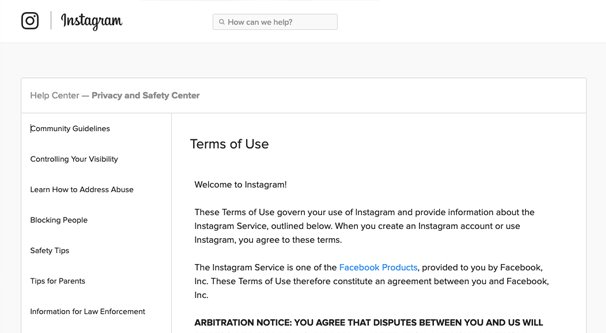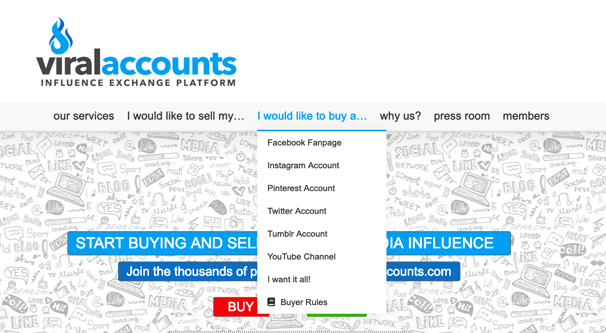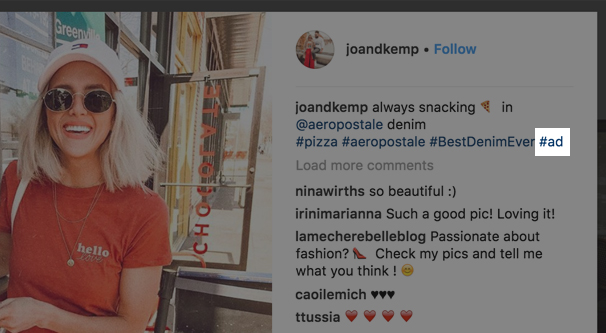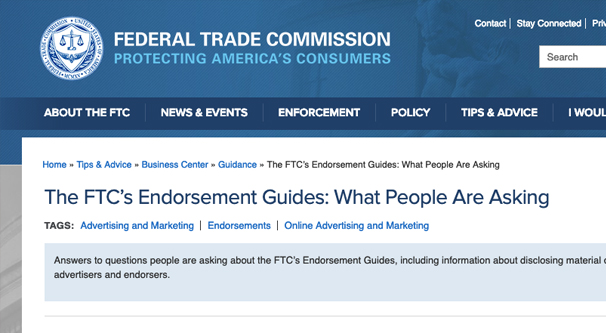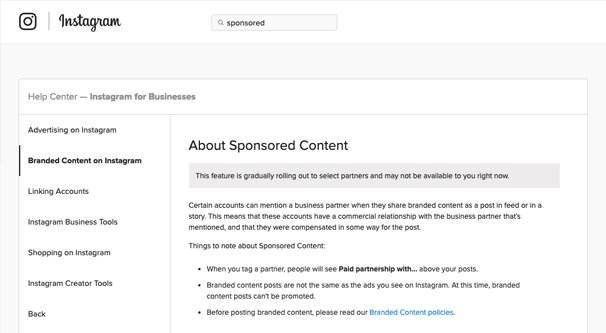There has been a lot of discussion recently about buying shoutouts on Instagram as a growth strategy. In a way, it’s similar to influencer marketing, substituting money for organic relationships.
Buying a shoutout from an influential creator on Instagram is a great way to get a lot of traffic. If your account lives up to the hype, you can convert that traffic into followers, into visits to your site, and into conversions.
The question is, is it legit? Are you even allowed to buy shoutouts, or are you putting your account at risk in doing so?
What Instagram Has to Say
Officially, there’s no word on shoutouts in particular, at least nothing in the Instagram help center. They don’t call out the term “shoutout” anywhere, and for good reason. No company on the scale of Instagram wants to worry about individual specifics; they’ll talk in broad terms in their terms of use and community guidelines, and leave the interpretation up to the people doing the enforcement.
So what do the Instagram documents have to say? Let’s take a look. The Instagram terms of use can be found here. Here’s a summary of what they have to say.
- Using Instagram means you agree to the terms, and you waive the right to participate in class action against Facebook/Instagram.
- In order to use Instagram, you must be at least 13 years old. You cannot be under legal penalty to not use the service. You cannot have previously been banned from the platform. You cannot be a convicted sex offender.
- You cannot impersonate others or provide inaccurate information. You don’t need to disclose your identity, but you can’t lie to them about information you give them in registration.
- You can’t use Instagram for illegal, fraudulent, or misleading purposes.
- You can’t interfere with the normal operations of Instagram.
- You can’t attempt to harvest information from users in unauthorized ways.
- “You can’t attempt to buy, sell, or transfer any aspect of your account (including your username) or solicit, collect, or use login credentials or badges of other users.”
- You can’t post private information or confidential information that violates rights. You can’t violate intellectual property rights.
- Your username cannot be a domain name or URL without prior written consent from Instagram itself.
There’s a lot more in there as well, mostly about the rights of images you post on the site and other legal terminology about how they handle disputes and so forth. The image rights thing is actually commonly brought up as a “look, you’re signing away your rights to Instagram whenever you post something!”
Well, no. You’re granting Instagram the right to display the images you upload to their platform. If they didn’t have that clause in their terms of use, they would have to get explicit permission to display every photo every time a photo was displayed, and it would end up a huge mess. Instagram isn’t claiming any ownership over your images, nor will they use them in a way you don’t approve of. The clause just allows them to enable media embeds and use through apps and so on.
Of the important clauses in the terms of service, there’s only one that could potentially be relevant to shoutouts, and that’s the one I bolded. You can’t buy or sell any aspect of your account. Now, the terms of service make it pretty clear this is relating to buying or selling your account, selling your username space, selling space in your profile bio, and so on. You can’t sell your account, basically.
Does the caption of your photo count as an aspect of your account? Technically, yes. This clause could be used to indicate that you’re not allowed to sell space in your captions, and thus are not allowed to sell shoutouts (or buy them).
The terms of service aren’t the only guidelines you have to follow on Instagram, though. You also have to pay attention to the community guidelines. Let’s look at that one next.
- You can only share photos and videos you have the rights to share. If you own it or if you have the license to post it, you can share it. Otherwise, it’s a violation of copyright.
- You cannot post anything that is “inappropriate”. Instagram defines this as nudity in general, with some restrictions and loopholes. This is one of the most controversial rules and has been pushed back and forth for years.
- You cannot artificially boost followers, shares, likes, comments, and so on. Avoid posting repetitive comments or content, and don’t repeatedly contact people commercially without their consent.
- Follow the law. Obviously, you can’t support terrorism, sell illegal drugs or weapons, or otherwise violate laws on advertising or selling services like gambling that aren’t allowed.
- You cannot post anything that is hateful, harassing, violent, discriminatory, or otherwise disrespectful, in general or in specific aimed at individuals. You also cannot glorify self-harm.
- Be careful with newsjacking, as it can be disrespectful itself.
As you can see from a summary, there’s nothing here that precludes the sale or purchase of shoutouts. In some sense it could potentially be considered a fraudulent way of gaining followers, but it’s not an exploit and it’s not using bots or fake accounts, so it’s not likely to fall into the realm of that rule.
Sponsored Posts, Branded Content, Ads?
Shoutouts skirt a tricky line that actually has nothing to do with the policies on Instagram and everything to do with United States law.
When person A wants person B to give them a shoutout, there are a few ways it can happen.
The first method is when person A pays for advertising space in the feed of person B. This doesn’t happen on Instagram through ads, but it can happen with blogs that sell their ad space, and other similar situations. Pretty much everywhere you see ads online, those ads are clearly disclosed to be ads. Even if they’re native ads aimed to look like non-ad content, they’re still disclosed in a visible way.
The second method is when person A pays to have a post they wrote posted in the feed of person B. Generally, these are labeled as “sponsored content”, and the financial relationship between A and B is disclosed.
The third method is the shoutout, that we’re talking about today. When person A pays person B to have person B mention person A in their organic posts. This may or may not have disclosure, and the best shoutouts generally do not.
There’s a risk here, and that risk is falling afoul of the United States Federal Government, or related entities. Specifically, this falls under the purview of the Federal Trade Commission. The FTC is in charge of regulating commerce, and they’ve had a lot of issues with the internet over the years.
One rule that has affected the internet far and wide is the requirement that financial relationships be disclosed. This is why you can’t pay for a higher Google ranking, it’s why all advertising channels have disclosure in them, and it’s why you should always make sure you have disclosure in a shoutout you pay for.
“Oh, but I’ve never heard of the FTC penalizing someone, so it’s probably fine!” That’s a line I’ve heard a few times, and it’s wrong. In fact, this post from the FTC itself talks about sending out threat letters to Instagram influencers for not disclosing their financial ties. They even mention that certain kinds of disclosure, like using “#sp” as short for sponsored, is not adequate.
In fact, reading the FTC Endorsement Guide should be required for all online marketers, at least those in any way beholden to United States law. That means anyone using US-based services, including things like Facebook and Instagram. It covers product placement, social media endorsements, social contests, intermediaries, and a lot more.
The FTC Act is the law that governs these endorsements, and it can levy a variety of penalties. The most usual penalty is financial compensation; you will be fined an amount calculated to be equal to the financial benefit you received from the endorsement. You will also likely have your Instagram account banned, since this breaks one relevant rule up above: don’t break the law.
So, to put it all in as simple terms as possible: Shoutouts are perfectly fine on Instagram so long as they are disclosed, for now. It’s always possible that Instagram will decide they want a cut of that pie and make their own sponsorship system. Indeed, they’re already starting to, with this sponsored content and branded content rollout. It’s not a feature available to everyone, and it won’t entirely shut down shoutouts, but it might become a basis for them to start cracking down in the next year or two.
How to Use Shoutouts Successfully
If you’ve read all of this and you still want to take advantage of shoutouts while you still can, that’s certainly something you can do. Just make sure to go about it the right way.
The first and most important tip is to make sure adequate disclosure is included for any shoutout. A shoutout is just a sponsored post, and without disclosure, you run the risk of a banned account, buying or selling.
Now, I know a lot of people are going to argue that, as long as they’re careful, they don’t need to disclose. After all, a product recommendation is fine so long as you bought the product yourself, right? Or you got the product for free? Well, not quite. Buying a product yourself is certainly fine. If you get it for free – or if you’re the one giving it out for free – that counts as compensation, unless it’s a situation where anyone can get one for free. Free samples at a store are fine. One free item to a person in exchange for a review requires disclosure.
Think about it this way. Any “but what about” statement you make is about a legal loophole. Legal loopholes only come into play if you’re caught and if you want to fight it. If you’re caught and you don’t have the ability to spend years in court and hire lots of lawyers, it doesn’t matter. The law will laugh at you and crack down on you. Even if you CAN fight it, you may still find your Instagram account banned in the mean time. Instagram certainly isn’t going to defend you against the federal government. It’s much better to just play on the right side of the law.
If you’re interested in buying a shoutout, you have to decide how you want to do it. Do you want to get a bio link, a mention in a caption, a photo dedicated to you, or some dedicated campaign? Are you providing the content, or just a product to photograph, or just financial compensation for whatever they create?
You also need to decide if you want to go through a shoutout service or approach people directly. It can be difficult to approach people through DMs and get a reply, but it can be a lot more rewarding than only using the accounts that sell themselves out every day. On the other hand, it might end up being much more expensive than you bargained for.
Whichever route you choose, make sure to investigate who is selling, what their engagement rates are, and what kind of returns you can expect. And, of course, make sure they properly disclose their financial ties to your brand.
